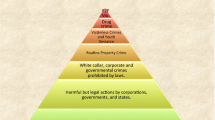Abstract
The task of a critical theory of society is to make visible the colonization and fragmentation processes which lead to distorted communication and to barriers to effective (political) action. Such a theory is however not very illuminating about the practical dimensions of how to go about — in concrete political contexts — organizing the ‘processes of enlightenment’, the selection of appropriate strategies, the solution of tactical questions, and the conduct of social and political struggle. Science therefore has to be very modest and careful in making recommendations. Theory can support counsellors with critical analysis of the contexts and conditions of the lives and problems of their clients, as well as of their own professional situation. It can for instance clarify the conditions for communication and intersubjectivity and describe and explain the structural and material conditions which prevent free symbolic interaction or unconstrained communication from taking place. But this assessment of the relation between theory and practice jeopardizes all those who believe in the rather unproblematic nature of ‘applied sciences’. We make no attempt to survey the various contributions to this debate, but restrict ourselves to presenting important aspects of the work of one of the most active actual adherers of critical theory: Jürgen Habermas.
Similar content being viewed by others
References
Corona, L. (1985). Self-concept as a fundamental construct in vocational counselling. International Journal for the Advancement of Counselling 8 (1): 31–35.
Drapela, V. (1985). The counselor as consultant. International Journal for the Advancement of Counselling 8 (1): 5.
Ibrahim, F. (1984). Cross-cultural counseling and psychotherapy: An existential-psychological approach. International Journal for the Advancement of Counselling 7 (3): 159.
Additional information
University of Amsterdam
Rights and permissions
About this article
Cite this article
Richters, A., Bonsel, E. The relevance of Jürgen Habermas' work for counselling. Int J Adv Counselling 10, 85–102 (1987). https://doi.org/10.1007/BF00156463
Issue Date:
DOI: https://doi.org/10.1007/BF00156463



